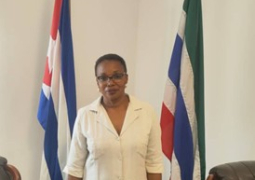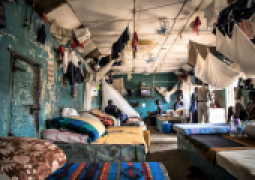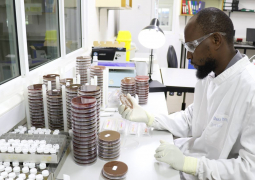
Speaking to The Point exclusively at his home, Mr Kurang said he believes the country is not doing well, noting The Gambia is a largely agricultural-based economy that depends on the tourism industry for foreign exchange and that none of those sectors is growing as expected.
“As we can see, in The Gambia, the tourist revenue has gone down drastically since 2020. Since COVID-19 knocked the industry, it could not revive.”
“So, I can say in terms of employment, this industry structurally employs thousands of Gambians but now, its situation affects employment; it affects peoples’ standards of living because it affects their income generation. The poor tourism also affects foreign exchange which hindered the stability and depreciation of the dalasi,” he noted.
On agriculture
Speaking further, he said the agricultural sector also is lagging behind and badly needs government intervention to revive the sector. “Agriculture will find it difficult to struggle for food self-sufficiency if the appropriate investment is not done,” he said.
“Every country wants economic growth and I do not think the economy of the country is growing satisfactorily at the moment because these (tourism and agriculture) are the major objectives of an economy of a country that needs growth. If you want growth and you do not have them you miss bigger objectives,” he said.
Mr. Kurang observed that currently The Gambia is struggling with inflation in the prices of commodities in the market, citing the recent increment in electricity tariff as an example.
“This is a major input for both households and companies within the country. So, now the cost of production will increase and there will be more inflation due to the increase in the price of electricity,” he noted.
According to statistics, The Gambia’s unemployment rate stands at 41.5 percent.
“The country is not doing well in employment. Employment and unemployment is a factor and a country that does not grow cannot provide lots of employment. So, we have low employment because both the ‘tourism industry and agriculture’ are down.”
He argued that the Gambia has one of the highest unemployment rates among peaceful countries globally as several youth graduate from schools but cannot get jobs.
“We have low growth, high inflation, and high unemployment. So, obviously, if you have some of these major objectives of economics, improving the living standard of the public would be very difficult,” he opined.
Recommendations
However, to boost the country’s economy, he said, there is a need for the government to invest heavily in sectors that can create jobs. He added the government should reduce borrowing from the Central Bank so that citizens and private companies can take loans to invest.
He said the government should improve the tourism industry by selling the country’s image internationally to attract tourists. “We should also improve our infrastructure and electricity to encourage more tourists in the country because poor electricity and infrastructure discourage tourists,” he added.
In agriculture revival, he advised the government to provide capital for farmers as well as integrate them into the formal economy by documenting their lands and introducing them to financial institutions so that they could access loans.
To further boost Gambia’s socio-economy, he said the government needs to stop granting licences to foreign vessels and empower Gambian fishermen with finance so that they invest and develop.
Read Other Articles In Headlines

Ex-police PRO Conta, others get prestigious medal from UNAMID police
Jun 4, 2020, 10:35 AM




